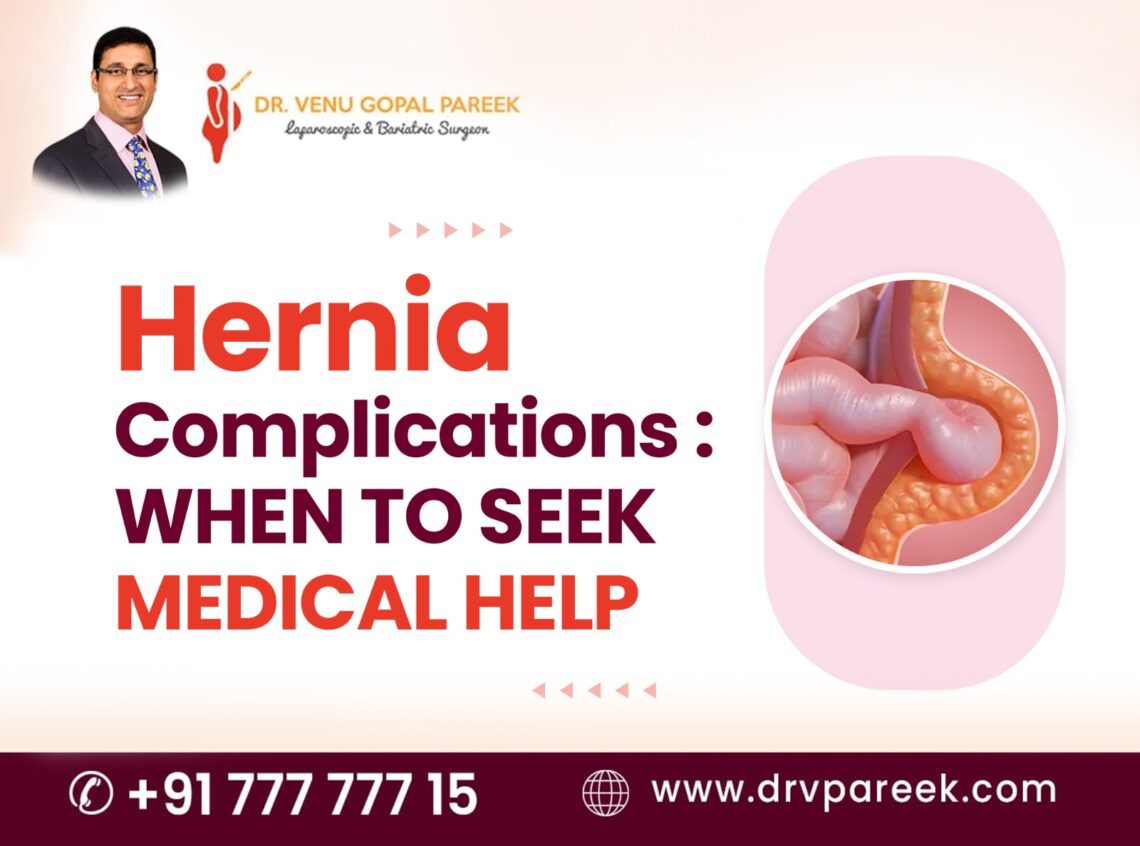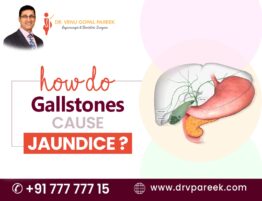
Hernias are common medical problems that affect people of any age. A hernia is a visible bulge under your skin that happens when an organ or tissue pushes through a layer of weakened muscle, and they are commonly observed in the abdominal area.
Even minor hernias can also cause some level of discomfort or pain, especially during certain activities, such as lifting heavy objects and other physical activities that put pressure on that area or strain during your bowel movement.
Generally, a hernia bulge can be pushed back inside the muscle layer where it is sticking out, regardless of whether or not it remains there. However, hernia complications might develop when the hernia gets trapped in between and is unable to push back.
Hernias are not dangerous in most cases. However, if left untreated, they may cause life-threatening complications that require prompt medical intervention.
Below are some of the common complications related to hernia:
Strangulated Hernia: Strangulation is one of the most severe complications of hernia. In this case, a part of the intestine or any other organ becomes trapped by surrounding muscle and loses its blood supply. Lack of blood supply results in tissue damage and even tissue death (gangrene). The main signs and symptoms of this condition include sudden pain that intensifies quickly, nausea, vomiting, constipation, and a discoloured or tender hernia bulge.
Obstructed Hernia: An obstructed or incarcerated hernia is one in which protruding tissue becomes trapped within the hernia sac. Often, this is also called a non-reducible hernia, which may lead to severe complications like tissue strangulation or blockage of the intestine. This blockage can restrict the passage of fluids and waste through the digestive system, causing symptoms like abdominal pain, vomiting, difficult-to-pass gas or stool (constipation), and bloating.
Hernia Infection: The strangulated tissue can get ruptured and release some toxins into the bloodstream that cause infection, which sometimes leads to sepsis or death. Redness, warmth, swelling, and fever are the common signs that indicate a hernia infection. This condition requires prompt medical treatment with antibiotics or surgical intervention if necessary, or it becomes life-threatening.
Adhesions: After a hernia repair surgery, there is a possibility of scar tissue (adhesions) formation around the surgical area. In some cases, these adhesions lead to bowel obstruction or chronic abdominal pain.
Recurrence: Even after successful hernia repair surgery, a recurrence of the hernia is possible, especially if people are obese, lifting heavy objects, or have a persistent chronic cough.
Seroma or Hematoma: This is one of the rare complications observed after a hernia repair surgery, where accumulation of fluid (seroma) or blood (hematoma) may be observed at the surgical site. Usually, they are not life-threatening but they need to be treated if they become large or symptomatic.
When to Seek Immediate Medical Help:
Dr. Venugopal Pareek, a hernia repair specialist in Hyderabad, advises getting immediate medical help if any person with a hernia experiences the following severe symptoms:
Sudden, Severe Pain: A severe pain all of a sudden at the site of the hernia often indicates a strangulated hernia, especially if nausea and vomiting are present along with pain. Consult a doctor immediately for medical help.
Abdominal Distention: In the case of an obstructed hernia, people may experience a swollen or bloated abdomen, accompanied by a hard and tender feeling at the site of the hernia, which suggests the need for urgent care.
Fever and Redness: If you observe redness, or warmth around the hernia accompanied by fever, or other symptoms like an infection, one should consult a hernia specialist immediately.
Constipation: Changes in your bowel movements, like hard to pass stool (constipation), and having trouble passing gas or vomiting, may indicate obstruction of bowel movements, which requires immediate medical treatment.
General symptoms: If you have a hernia and are experiencing any ongoing discomfort or pain around the hernia site or have any other unusual symptoms, it’s highly recommended that you consult a hernia expert doctor to rule out any possible complications.
However, you can prevent hernia complications if you follow certain tips, like maintaining a healthy weight, avoiding lifting heavy objects, and quitting smoking and drinking alcohol. If you have any uncommon symptoms, like chronic cough, see your doctor and get it treated. Also, maintain a healthy diet with high fibre and exercise regularly.
Hernias are common and don’t cause any complications, but they may result in severe or life-threatening complications if left untreated or ignored. Dr. Venugopla Pareek, one of the best hernia surgeons in Hyderabad, says that early diagnosis and treatment are very important to manage complications related to hernia.
Remember that early treatment can have a positive impact on both the treatment outcome and your overall well-being. Make your well-being your top priority; don’t hesitate to consult a doctor for help if you’re in need of it.







